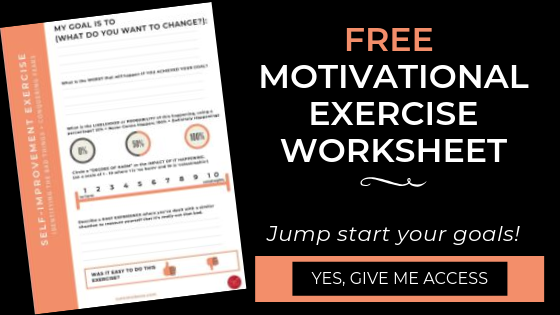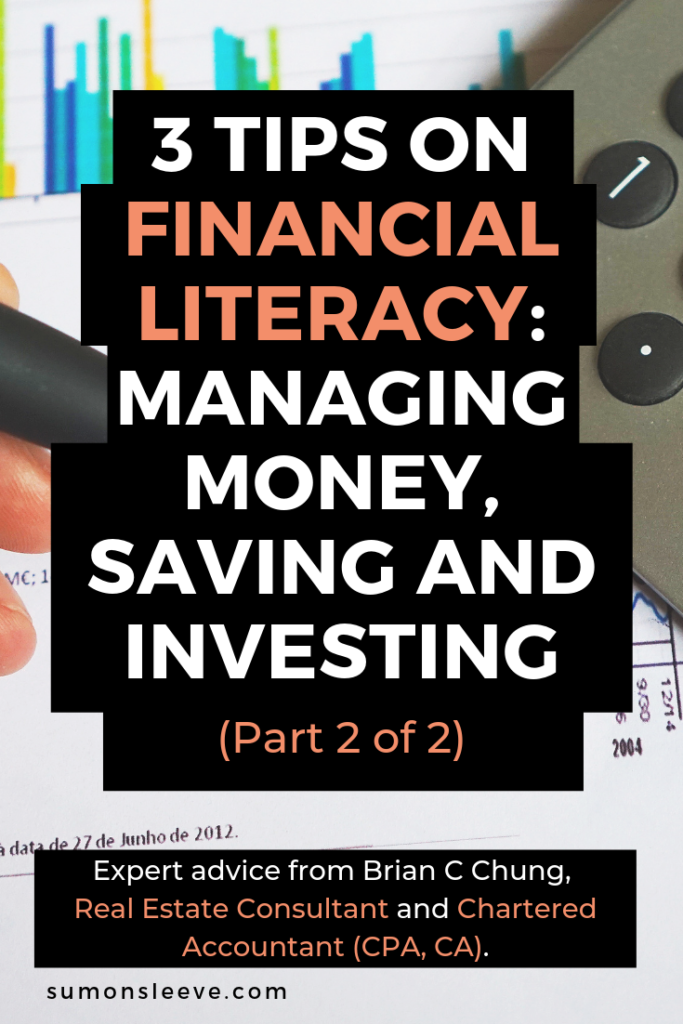EPISODE 29: 3 SIMPLE TIPS ON MANAGING MONEY, SAVING AND INVESTING (PART 2 OF 2)
WATCH PART 1 THE VIDEO NOW TO SEE BRIAN’S 1ST AND 2ND TIP
From saving to spending to investing money. MONEY is a hot topic for many people.
If managing your personal finances has been on your mind, watch this video to increase your financial literacy knowledge.
Many people think about money but it’s considered taboo to talk about personally.
During a casual conversation, no one dares to ask,
“So how much debt do you have?”
“How much money do you make?”
“What do you have in your nest egg?”
These questions only come up when big, scary decisions need to be made (like buying a home or getting married) and serious ‘adulting’ starts to happen.
As mentioned in my previous posts, I’m not much of a spender and materialism isn’t one of my vices; however, I wouldn’t consider myself an expert to give sound advice on managing personal finances.
So I asked my husband, Brian C Chung (Real Estate Consultant, Chartered Accountant) to share his top 3 tips on financial literacy.
Brian believes that many households do not talk about money and therefore, financial literacy amongst Canadians is very low.
He grew up in a household where he witnessed his parents constantly bickered and struggled about their finances.
Here are his top 3 tips on managing money, saving and investing:
1. Understand Your Why and What You’re Saving For
Whenever you set out to achieve a financial goal, it’s important you have a clear idea of what you’re trying to work towards.
You must have heard this before: a rainy day fund, nest egg, savings – they all refer to the same thing – money or monies you set aside for something that will positively impact your life and your family’s.
Whether it was saving to buy my first ride to saving up for a down payment, to paying off student loans or to fund that 3-month backpacking hiatus in Europe – you get the picture. Money can be stressful, I get it. Things you do in your twenties your thirties will thank you – financially.
I want you to ultimately take control of your financial destiny and being able to enjoy life down the road. Remember it’s not how much you make it’s ultimately how you spend
2. Make Thoughtful Expenses (Buy Things You Need)
I highly suggest you perform a self-audit on the last three to six months of spending. This could be scary but it will be eye-opening. You can start with your credit card statement.
Categorize the types of expenditures and start to see how much after-tax cash you are spending on each bucket.
Some examples are: eating out, discretionary spend – buying items, alcohol, gas, and travel.
Once you are done this audit, you will be very surprised at where all the money is going. Any surprises?
Start having conversations with yourself, your family or your partner and see where more thoughtful spending can be applied to each of the categories. Everything helps.
3. Save and Invest Early
For those in their 20’s, use time as your asset and stop thinking about NOW, NOW, NOW. Be patient.
1. Buy one less coffee or latte a day
2. Pack a lunch (eat out less)
3. Buy one less clothing item
4. Stop buying crap you don’t need (the catch-all)
5. Make purchases with cash and avoid the plastic
These suggestions are super practical and when done on a daily, weekly, monthly basis – you will see results and start building towards that down payment or increased savings.
These behavioural shifts and applying more thought to each purchase decision if you choose to take this route will have a significant impact on your life over the long run.
Time will fly and once you look back you will have ample savings to invest in stocks and real estate.
What are your tips on achieving financial wellness?
Let me know in the comments below.





